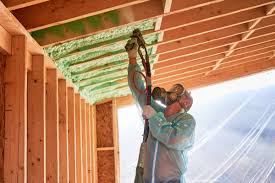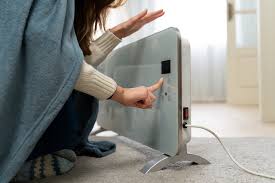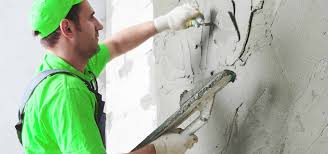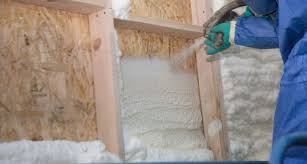How to Choose the Right Spray Foam Insulation Contractor

Choosing the right contractor for your insulation project can make or break the success of your investment. Spray foam insulation has become one of the most energy-efficient solutions for residential and commercial buildings, offering long-term savings and improved indoor comfort. However, its effectiveness heavily depends on the expertise of the installer. This is why selecting experienced and certified spray foam insulation contractors is a critical step in achieving reliable and high-quality results.
From proper application techniques to ensuring safety compliance, not all contractors are equal. This article offers a comprehensive guide on how to evaluate, compare, and hire the best contractor for spray foam insulation, whether you're insulating a new construction, upgrading your attic, or sealing a commercial space.
Understanding Spray Foam Insulation
Spray foam insulation is a two-component mixture that expands into a foam when applied, creating an airtight and moisture-resistant seal. It comes in two main types: open-cell and closed-cell. Open-cell is lighter and more flexible, ideal for soundproofing and interior walls. Closed-cell is denser, offering superior thermal resistance and water resistance, making it suitable for roofs, basements, and exterior walls.
The versatility of spray foam allows it to fill irregular spaces, cracks, and cavities, providing superior performance over traditional insulation materials like fiberglass or cellulose. However, the product must be applied correctly, at the right temperature, and with proper safety precautions—hence the importance of hiring a knowledgeable contractor.
Why Contractor Selection Matters
Unlike roll-out insulation that can be installed by general laborers, spray foam insulation requires specialized equipment, chemical knowledge, and proper training. Errors in mixing, applying, or curing can result in off-gassing, poor insulation performance, or even health risks.
A skilled contractor will ensure:
Accurate assessment of building needs
Correct type and amount of foam used
Proper surface preparation and application technique
Ventilation and safety during installation
Compliance with local building codes and energy standards
Cutting corners on your contractor choice can lead to subpar results and future repair costs, making it essential to conduct thorough research before making a decision.
Signs of a Qualified Spray Foam Contractor
Certification and Licensing
One of the first things to look for is proper certification. Reputable contractors often hold credentials from organizations such as the Spray Polyurethane Foam Alliance (SPFA) or similar industry-recognized institutions. They should also have licenses that meet your state or municipality’s requirements for building and insulation services.
Certification indicates that the contractor has undergone formal training in safety, product handling, and application techniques. It’s a strong indicator of professionalism and industry compliance.
Insurance Coverage
Always verify that the contractor carries both general liability and workers’ compensation insurance. This protects you in the event of accidents, property damage, or worker injury during the project. Lack of insurance is a red flag and exposes you to potential financial liability.
Experience with Similar Projects
A contractor's experience is invaluable, especially if your building has unique features such as high ceilings, crawl spaces, or areas prone to moisture. Ask for references and photos of past projects similar to yours. Experienced contractors can foresee potential problems and provide customized solutions that maximize efficiency and safety.
Questions to Ask Before Hiring
To assess whether a spray foam contractor is the right fit, conduct a detailed interview and don’t hesitate to ask technical questions. Some important ones include:
How long have you been working with spray foam insulation?
What types of foam do you use, and why?
Can you provide recent references?
What safety measures do you implement during installation?
How do you prepare the space before spraying?
What is your warranty policy?
The way a contractor answers these questions will give you insight into their knowledge, customer service, and transparency.
Understanding the Proposal and Estimate
A detailed estimate reflects the professionalism and integrity of the contractor. Avoid vague proposals that offer a flat price without explanation. A reliable contractor will break down:
The scope of the project
The type and brand of spray foam
Thickness of insulation to be applied
Prep work and cleanup procedures
Estimated time for completion
Make sure the estimate includes everything—materials, labor, and post-application inspections. It’s also wise to get at least two or three quotes for comparison, but beware of prices that seem too low, as they often indicate compromised quality or hidden fees.
Site Visit and Evaluation
Before beginning the project, a reputable contractor should conduct an in-person evaluation of your property. This allows them to assess existing insulation, identify areas of energy loss, measure moisture levels, and determine which type of foam will be most effective.
Remote estimates without a physical walkthrough may miss key structural or environmental factors. Contractors who take time to evaluate the space carefully are more likely to deliver accurate results and better long-term performance.
Red Flags to Avoid
While many contractors advertise spray foam services, not all are equally skilled or reliable. Be wary of contractors who:
Avoid answering technical questions
Rush you into signing a contract
Lack online presence or customer reviews
Refuse to show proof of insurance or certification
Offer extremely low pricing with limited details
These are signs that the contractor may not meet industry standards or could cut corners during the job.
Ensuring a Clean and Safe Work Environment
Spray foam application involves handling chemicals that can emit fumes during the curing process. An experienced contractor will take safety precautions to protect occupants and their team. This includes:
Using protective suits and respirators
Setting up proper ventilation systems
Ensuring no one is in the sprayed area during and after application
Following local guidelines for occupancy reentry
These protocols should be clearly explained to you before the job starts. Proper ventilation and cure time are essential to ensure a safe environment post-installation.
Importance of Warranties and Post-Installation Support
Spray foam insulation is a long-term investment, and the contractor’s support shouldn’t end when the foam is dry. Ask about the warranty they provide—both on the product and their workmanship.
Reputable spray foam insulation contractors will offer a written warranty and provide guidance on how to monitor the insulation over time. They may also schedule follow-up visits to ensure the foam is performing as expected and hasn't shifted, settled, or detached from surfaces.
Local Expertise and Code Compliance
Local building codes can vary significantly, especially when it comes to insulation standards and fire barriers. Contractors who have experience working in your area will be familiar with these regulations and ensure your project passes inspections.
New construction and remodels often require third-party inspections before occupancy is approved. Hiring a contractor who understands your town or city’s requirements can streamline this process and avoid delays or rework.
Long-Term Benefits of Hiring the Right Contractor
While upfront cost is often the focus, hiring the right contractor yields lasting returns in comfort, energy savings, and peace of mind. Properly installed spray foam:
Reduces heating and cooling bills
Enhances indoor air quality
Prevents moisture buildup and mold growth
Strengthens the building envelope
Increases property value
A poor installation, on the other hand, can lead to air leaks, foam shrinkage, and a need for reapplication—all of which cost more in the long run.
Conclusion
Choosing the right insulation professional is just as important as choosing the insulation material itself. With spray foam’s high-performance benefits come equally high stakes when it comes to correct application. By thoroughly vetting spray foam insulation contractors, asking the right questions, and understanding what to expect during the process, you set the stage for a successful project that delivers comfort, efficiency, and long-term durability. Don’t settle for less—your building and your budget deserve the best.
Note: IndiBlogHub features both user-submitted and editorial content. We do not verify third-party contributions. Read our Disclaimer and Privacy Policyfor details.







